On April 16…
“Schools should be places of safety and sanctuary and learning. When that sanctuary is violated, the impact is felt in every American classroom and every American community.”
~President George W. Bush
Virginia Tech Shooting

1789– Newly elected President George Washington left his Mount Vernon, Virginia, home and headed for New York City’s Federal Hall (site of the first U.S. Capitol), where two weeks later, he was sworn in as the first American president.
Washington admitted that he would have preferred to stay in retirement, but disturbed by growing antagonism between the fledgling nation’s political factions, he felt duty-bound to help resolve what he feared was an impending crisis.

1908– The area known as Natural Bridges in southeast Utah was designated a National Monument by President Theodore Roosevelt.
The main attractions are the natural bridges – Sipapu, Owachomo, and Kachina – but there is something else very special awaiting visitors.
In 2007, the International Dark-Sky Association designated Natural Bridges National Monument – one of the darkest national parks in the country – as the world’s first International Dark Sky Park.
On a clear night, the park’s night sky reveals the Milky Way galaxy and a billion or so stars, made possible by the park’s light fixtures – none of them stronger than 13-watts – being shielded so all the light points downward.
“Many park visitors are astounded when they first see the Milky Way under a dark sky,” park management says. “It isn’t just a faint smudge in the sky, but a bright, intricate river of light – almost three dimensional.”

1945– The Soviet Union began their final assault on German forces around Berlin. With nearly one million Soviet soldiers commanded by Marshal Georgi Zhukov, the Soviet Army attacked the position known as the “Gates of Berlin”.
The result of the four-day Battle of Seelow Heights was the encirclement of the German 9th Army, the last major defensive line outside Berlin.
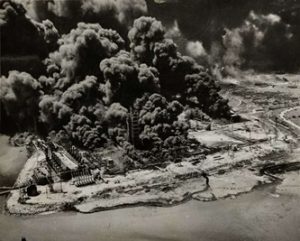
1947– A giant explosion occurred during the loading of ammonium nitrate fertilizer as well as tobacco and government-owned ammunition onto the freighter Grandcamp at a pier in Texas City, Texas.
Nearly 600 people lost their lives and thousands were injured when the ship was literally blown to bits.
While the ammunition was removed from the ship, the crew attempted to restrict oxygen to the ship’s hold in hopes of putting out the fire. They did not realize that because of ammonium nitrate’s chemical composition, it does not require oxygen to burn.
By 9 a.m., flames had erupted from the hold and at 9:12, it exploded. The blast was heard 150 miles away and was so powerful that the ship’s 1.5- ton anchor was found two miles away.
The force of the explosion lifted another ship completely out of the water. People working at the docks were killed instantly.
Pieces of flaming debris damaged the oil refineries in the area. A nearby Monsanto chemical storage facility also exploded, killing 234 of the 574 workers there. A residential area of 500 homes was also leveled by the blast.
Another ship, the High Flyer, which was carrying similar cargo, was pushed completely across the harbor.
The crew fled when it came to rest, failing to notice that a fire had started and that evening, the High Flyer also exploded.
581 people died and over 5,000 were injured. The explosion caused $100 million ($1.2 billion in today’s terms) in damages.
This video from 1987 does a great job in providing the details.

1947– Rudolf Höss, the longest-serving (3 ½ years) commandant of the Auschwitz concentration and extermination camp, was executed by hanging.
The sentence was carried out next to the crematorium of the former Auschwitz I concentration camp.
The gallows (shown above) were specifically built for the Höss execution and were never used again. They stand today as a reminder of the horror that took place at Auschwitz.
Infamous Statement: During his trial, when he was accused of murdering three and a half million people, Höss replied, “No. Only two and one half million – the rest died from disease and starvation.”
Caution is urged before watching this video. In fact, you may receive a warning from YouTube asking you if you are sure you want to watch. The content is safe, but explicit.
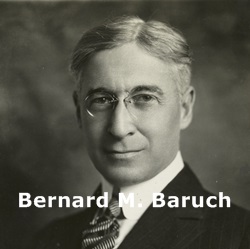
1947– Financier and presidential confidant Bernard M. Baruch said in a speech at the South Carolina statehouse, “Let us not be deceived. We are today in the midst of a cold war.”
It was supposedly the first use of the term to describe the specific post-World War II political confrontation between the Soviet Union and the United States, and while Baruch is often credited with originating the term, the speech he delivered that day was actually written by journalist Herbert Bayard Swope.
Furthermore, English author George Orwell used “cold war” as a general term, in his essay You and the Atomic Bomb, published in October 1945 in a British newspaper.
Contemplating a world living in the shadow of the threat of nuclear warfare, Orwell looked at James Burnham’s predictions of a polarized world, writing:
“James Burnham’s theory has been much discussed, but few people have yet considered its ideological implications – that is, the kind of world-view, the kind of beliefs, and the social structure that would probably prevail in a state which was at once unconquerable and in a permanent state of “cold war” with its neighbors.“
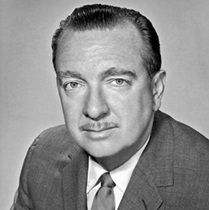
1962– Walter Cronkite succeeded Douglas Edwards as anchorman of the CBS News nightly broadcast. He remained in that position until March 6, 1981.
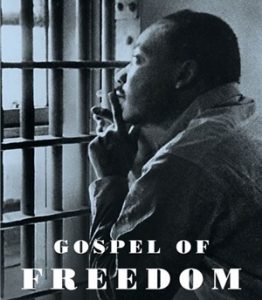
1963– The Letter from Birmingham Jail (also known as the Letter from Birmingham City Jail and The Negro Is Your Brother) was an open letter written by Martin Luther King Jr. on this date.
He wrote it as he sat in a cell at Birmingham, Alabama for violating an injunction on April 12 that outlawed “parading, demonstrating, boycotting, trespassing and picketing.”
The letter defended the strategy of nonviolent resistance to racism. It said that people have a moral responsibility to break unjust laws and to take direct action rather than waiting potentially forever for justice to come through the courts.
Responding to being referred to as an “outsider,” King wrote, “Injustice anywhere is a threat to justice everywhere”.
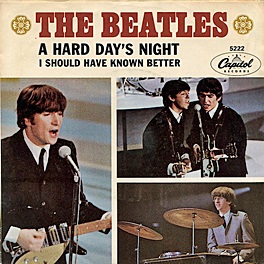
1964– The Beatles recorded A Hard Day’s Night.
The song topped the charts in ten countries, including the U.S. and UK when it was released as a single.
Origin Factoid: Ringo Starr is always given credit for coming up with the song title. In a 1964 interview, he said, “We went to do a job, and we’d worked all day and we happened to work all night. I came up still thinking it was day I suppose, and I said, ‘It’s been a hard day …’ and I looked around and saw it was dark so I said, ‘… night!'”
However…
It wasn’t a new phrase at all. It had appeared in John Lennon’s book In His Own Write, published on March 23, 1964…
“There was no reason for Michael to be sad that morning, (the little wretch); everyone liked him, (the scab). He’d had a hard day’s night that day, for Michael was a Cocky Watchtower.”

1964– Dean Martin recorded Everybody Loves Somebody.
The song was written in 1947 and had been recorded by several artists, including Frank Sinatra, but had never enjoyed commercial success. Four months after recording it, Martin’s version knocked The Beatles’ A Hard Day’s Night off the top of the Billboard singles chart.
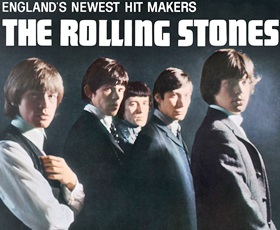
1964– The Rolling Stones, the band’s debut album, was released in the UK.
Only one of the twelve songs – Tell Me (You’re Coming Back) – was written by Mick Jagger and Keith Richards, although two more were credited to Nanker Phelge – a pseudonym the band used for group compositions.
Despite its lack of original material (not uncommon in those days), the album spent 12 weeks at #1 in the British charts.
The American edition of the album, with a slightly different track list, was released on May 30,1964, subtitled England’s Newest Hit Makers, which later became its official title.
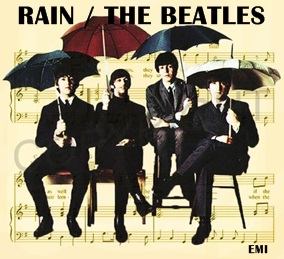
1966– The Beatles recorded Rain.
Released as a B-side to Paperback Writer, the song peaked at #23 on the Billboard Hot 100.
Weather Factoid: The song was inspired by John Lennon’s recollection of a Beatles tour of Australia.
“It rained so hard there, the hardest rain I’ve ever seen. Everyone was complaining about it but when the rain stopped for a bit and the sun was shining, they were complaining because it was too warm. So when I wrote ‘Rain’, I just remembered those people there moaning about the weather all the time. But really, people do that everywhere, don’t they?”
A Mistake Turned Out OK Factoid: The key feature of Rain – in addition to Ringo Starr’s out-of-this-world drumming – was Lennon’s backwards vocals, heard during the coda at the song’s end.
Lennon claimed that the discovery was the result of a stoned accident, when he threaded his rough mix tape of the song into his reel-to-reel player the wrong way round.
“I ran in the next day and said, ‘I know what to do with it, I know… Listen to this!'”

1972– In an effort to help blunt the ongoing North Vietnamese Nguyen Hue Offensive, the United States resumed the bombing of Hanoi and Haiphong after a four-year lull.
In the first use of B-52s against both Hanoi and Haiphong, and the first attacks against both cities since November 1968, 18 B-52s and about 100 U.S. Navy and Air Force fighter-bombers struck supply dumps near Haiphong’s harbor.
Sixty fighter-bombers hit petroleum storage facilities near Hanoi, with another wave of planes striking later in the afternoon. A White House spokesman announced that the United States would bomb military targets anywhere in Vietnam in order to help the South Vietnamese defend against the communist onslaught.
Actress Jane Fonda became infamous for travelling to North Vietnam three months later to protest the bombing renewal. She was pictured sitting on a North Vietnamese anti-aircraft battery, wearing a helmet (an image that still enrages veterans), and more than anything else, earned her the nickname “Hanoi Jane”.
North Vietnamese press reported — and Fonda later confirmed — that she made several radio announcements over the Voice of Vietnam radio to implore U.S. pilots to stop the bombings.

1992– The House ethics committee dropped a political depth charge when it released the names of 303 current and former lawmakers who overdrew their accounts at the now-closed House of Representatives Bank.
In less than four years, House members wrote nearly 20,000 bad checks totaling almost $11 million. The scandal contributed to a perception of corruption and malfeasance and was a contributing factor to major changes in the House, in which 77 Representatives resigned or were ousted in the 1994 election.
Idle Thought: And we trust these people with our money?

1992– The 780-foot oil tanker Katina P ran aground off of Maputo, Mozambique and created an environmental nightmare.
The Katina P had been declared unseaworthy while anchored at Rio de Janeiro, and was ordered to steam that spring from that port to Bangladesh to be broken up.
But while crossing the Atlantic, the captain received orders to turn about and load a last load of fuel oil in Venezuela, destined for Fujirah, in the United Arab Emirates.
Thus began one of the worst oil spills in that part of the world.
The 26-year-old vessel – laden with 72,000 tons of crude oil – was operating on the open seas under Greek ownership when a storm on the Indian Ocean off Mozambique caused extensive damage and tore away a hull plate.
The ship immediately began leaking crude oil (13,00 tons) and appeared in danger of sinking, so the crew deliberately drove the tanker on a sandbar six miles off Maputo, in the Mozambique Channel, in the hope of saving the rest of the cargo, if not the vessel.
An additional 3,000 tons leaked from the hull after it was grounded.
A tug, the John Ross, was dispatched from South Africa and managed to pull the disabled tanker back out to the open sea.
Plans were made to pump the rest of the Katina P‘s cargo of oil into awaiting tankers. But on April 26, the old ship buckled before it arrived at the transfer site and sank in 6,600 feet of water off the coast of Mozambique.
The remaining 56,000 tons of crude oil spilled into the ocean.

2007– In one of the deadliest mass shootings in U.S. history, 32 people died after being gunned down on the campus of Virginia Tech by Seung Hui Cho, a student at the college who later committed suicide.
The shooting began around 7:15 a.m., when Cho, a 23-year-old senior and English major, shot a female freshman and a male resident assistant in a campus dormitory before fleeing the building.
Police were soon on the scene; unaware of the gunman’s identity, they initially pursued the female victim’s boyfriend as a suspect in what they believed to be an isolated domestic-violence incident.
However, at around 9:40 a.m., Cho, armed with a 9-millimeter handgun, a 22-caliber handgun and hundreds of rounds of ammunition, entered a classroom building, chained and locked several main doors and went from room to room shooting people. Approximately 10 minutes after the rampage began, he died from a self-inflicted gunshot wound.
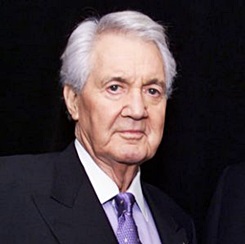
2013– Pat Summerall died of cardiac arrest at the age of 82.
Summerall spent ten years in the National Football League, primarily as a placekicker, but he is best remembered for his career as a sportscaster; in football, golf and tennis.
He announced 16 Super Bowls, 26 Masters Tournaments, and 21 U.S. Opens, in addition to covering NCAA basketball, bowling and boxing.
The National Sportscasters and Sportswriters Association named Summerall National Sportscaster of the Year in 1977, and inducted him into its Hall of Fame in 1994.
Summerall was the 1994 recipient of the Pete Rozelle Radio-Television Award, bestowed by the Pro Football Hall of Fame “for longtime exceptional contributions to radio and television in professional football”.
John Madden, Summerall’s broadcast partner for 22 years, had the tough task of saying goodbye. This is lengthy but so well worth watching because it gives you a hint of what kind of man Pat Summerall was.
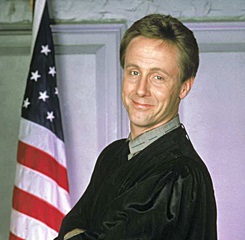
2018– Actor Harry Anderson died of a stroke due to influenza and heart disease. He was 65.
He is best known for the role of Judge Harry Stone on Night Court, and later starred in the sitcom Dave’s World.
Anderson also had a recurring guest role as con man Harry “The Hat” Gittes on Cheers
.
Compiled by Ray Lemire ©2020 RayLemire.com / Streamingoldies.com. All Rights Reserved.
